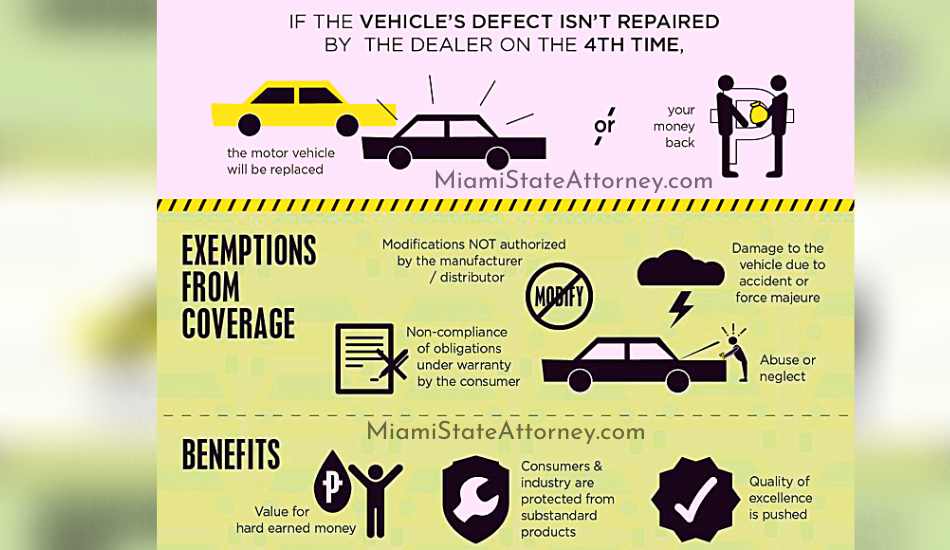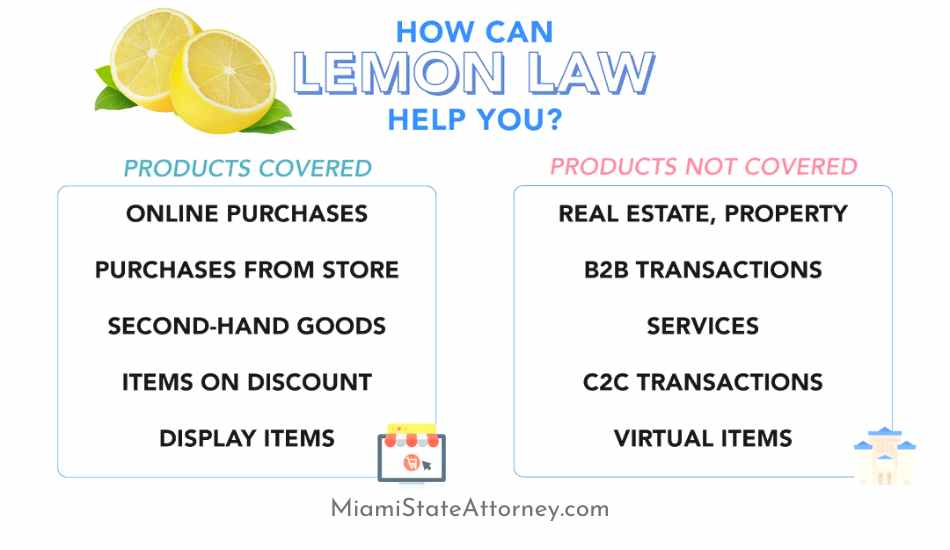Lemon laws, also known as consumer protection laws, are designed to protect buyers of new or used cars, trucks, motorcycles, and other vehicles. These laws provide consumers with a means of resolving disputes and obtaining compensation when purchasing a vehicle that turns out to be a “lemon.” This article will explain how the lemon law works, what it covers, and what consumers need to know to take advantage of its protections.
A “lemon” is a vehicle with a significant defect or problem that affects its use, value, or safety and that cannot be repaired despite repeated attempts by the manufacturer or dealership.

Working
- Lemon laws vary by state, but generally, a vehicle is considered a lemon if it has a defect that substantially impairs its use, value, or safety and if the problem is not fixed after a reasonable number of attempts. In some states, a vehicle may also be considered a lemon if it has been out of service for an extended period due to repairs.
- Consumers must first report the problem to the manufacturer or dealership to take advantage of lemon laws. The manufacturer or dealership then has the opportunity to repair the problem.
- If the problem cannot be fixed after a reasonable number of attempts, the consumer may be entitled to a refund or replacement vehicle under the lemon law. In some cases, the consumer may also be entitled to compensation for repairs, towing, and rental cars.
- Consumers should keep careful records of all repairs, including dates, problems reported, and repair attempts. This information can be important in demonstrating that the problem has yet to be fixed after a reasonable number of attempts and can also be used to support a claim under the lemon law.
- If a dispute arises, the lemon law provides various methods of resolving the issue, including arbitration, mediation, and court proceedings. In many cases, disputes are resolved through arbitration, which is a less formal and less expensive than going to court. If a dispute cannot be resolved through arbitration or other means, the consumer may file a lawsuit in court to enforce their rights under the lemon law.
- The lemon law is an important tool for protecting consumers who purchase vehicles that turn out to be lemons. However, it is important for consumers to understand their rights and responsibilities under the lemon law and to take steps to protect themselves when purchasing a vehicle. Consumers should always read the warranty and other documents carefully and keep careful records of all repairs and attempts to resolve problems with the vehicle.

Here are a few more key aspects of the lemon law:
- Statute of Limitations: Lemon laws usually have a statute of limitations, a deadline for filing a claim. This deadline may vary by state, but it is typically between one and four years from the date of purchase or the date the defect was discovered. Consumers should be aware of the statute of limitations in their state and should act promptly if they believe they have a claim under the lemon law.
- Right to an Attorney: Lemon laws typically give consumers the right to an attorney in arbitration or court proceedings. Consumers who believe they have a claim under the lemon law should consult an attorney to help them navigate the process and ensure their rights are protected.
- Manufacturer’s Duty to Repurchase or Replace: If a vehicle is determined to be a lemon under the law, the manufacturer is typically obligated to repurchase or replace the vehicle. This may involve returning the original vehicle to the manufacturer or exchanging it for a new or used vehicle of comparable value. In some cases, the manufacturer may also be required to pay the consumer’s expenses, including repairs, towing, and rental cars.
- Arbitration vs. Court Proceedings: As mentioned earlier, disputes over lemon laws may be resolved through arbitration or court proceedings. Arbitration is usually less formal and less expensive than going to court and may result in a faster dispute resolution. However, arbitration is typically binding, which means that the consumer cannot later sue the manufacturer in court if they are dissatisfied with the outcome of the arbitration. On the other hand, court proceedings allow for a trial by jury and may result in a larger award of damages, but they can also be more time-consuming and expensive.
Limitations of Lemon Laws:
- Lemon laws are not a cure-all solution for all vehicle problems and may not cover every type of defect or problem. For example, lemon laws may not cover problems caused by normal wear and tear or problems resulting from abuse, neglect, or unauthorized modifications. Consumers should be aware of the limitations of the lemon law in their state and should understand what issues are covered.
- Timing is another aspect that might influence lemon law claims. Under California’s Lemon Law, the limitation period is four years. The clock starts ticking when you first discover or should have recognized the flaw.
- Every Lemon Law situation is unique. As a result, estimations of their longevity have a wide margin of uncertainty. Most instances, however, are resolved in months instead of weeks or years. Since only they may determine if they want to embrace a settlement offer, the consumer frequently controls how long the lawsuit will take.

In conclusion, the lemon law is a powerful tool for protecting consumers who purchase vehicles that turn out to be lemons. It provides consumers with a means of resolving disputes and obtaining compensation when they purchase a vehicle that is defective or cannot be repaired.
Consumers should be familiar with their rights and responsibilities under the lemon law and take steps to protect themselves when purchasing a vehicle. Whether you are buying a new or used car, truck, motorcycle, or other vehicle, it is important to understand how the lemon law works and what it covers.
With the correct information and a little preparation, you can be confident that you are protected if you purchase a lemon.
